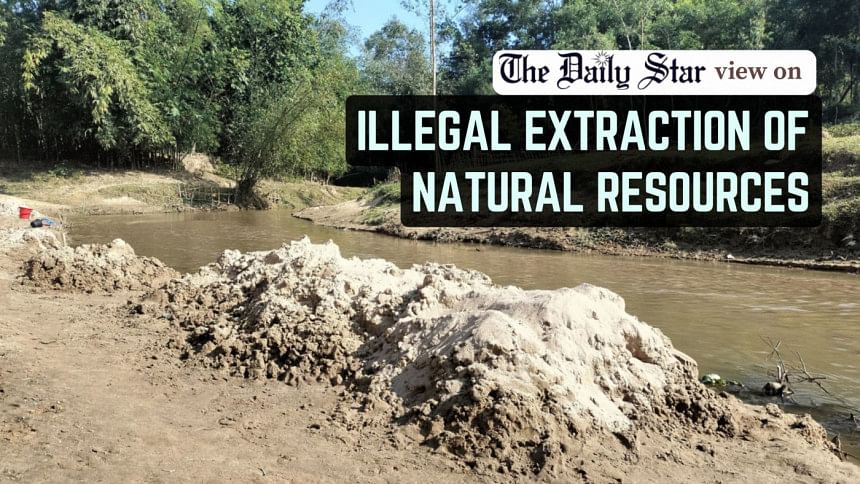Stop illegal extraction of natural resources

We are concerned about the rampant illegal sand extraction reported at the Barachhara canal in Sharsharshee village of Sreemangal, Moulvibazar. According to a report by this daily, the extraction has continued unabated despite a High Court order banning sand mining in the area, causing parts of a sluice gate to sink. Built to provide irrigation water to local farmers, the gate's functionality is now compromised, jeopardising agricultural activities and the livelihoods of around 25,000 farmers in surrounding villages. Furthermore, several sinkholes have appeared in the nearby Dinarpur Tea Garden, while roads have been severely damaged by heavy vehicles transporting the sand.
Locals allege that an influential group, led until recently by a Jubo League leader who is now on the run, is behind this operation. Even though his two-year lease for sand extraction has expired, there has been no let-up in sand extraction. Who, then, is doing it in his absence? The local administration is apparently in the dark about this. We have seen a similar trend in Sylhet's Companyganj where two hillocks have been stripped bare since August 5 through illegal stone quarrying. There, too, the local administration's role has left a lot to be desired.
In Bangladesh, we have no shortage of laws, regulations, and court orders prohibiting illegal and destructive resource extraction. Yet, enforcement has remained woefully inadequate. Even with a non-political government in place, the entrenched political-administration-business nexus continues to wreak havoc on our precious environment and ecology. This needs to change.
We expect the environment adviser, herself a prominent environmental activist, and her ministry to use their authority and experience to stop all illegal operations in extracting natural resources. Given the scale of the problem, it may not be possible for the government to guard every canal, hill, or natural resource on its own. However, community-based initiatives can play a crucial supportive role. Locals can be educated, empowered, and included in the protection and maintenance of these resources. The idea of community policing, supported by local administration and environmental groups, should also be pursued to curb these activities. Only collective efforts can help protect our natural resources on which the livelihoods and well-being of countless citizens depend.


 For all latest news, follow The Daily Star's Google News channel.
For all latest news, follow The Daily Star's Google News channel. 









Comments